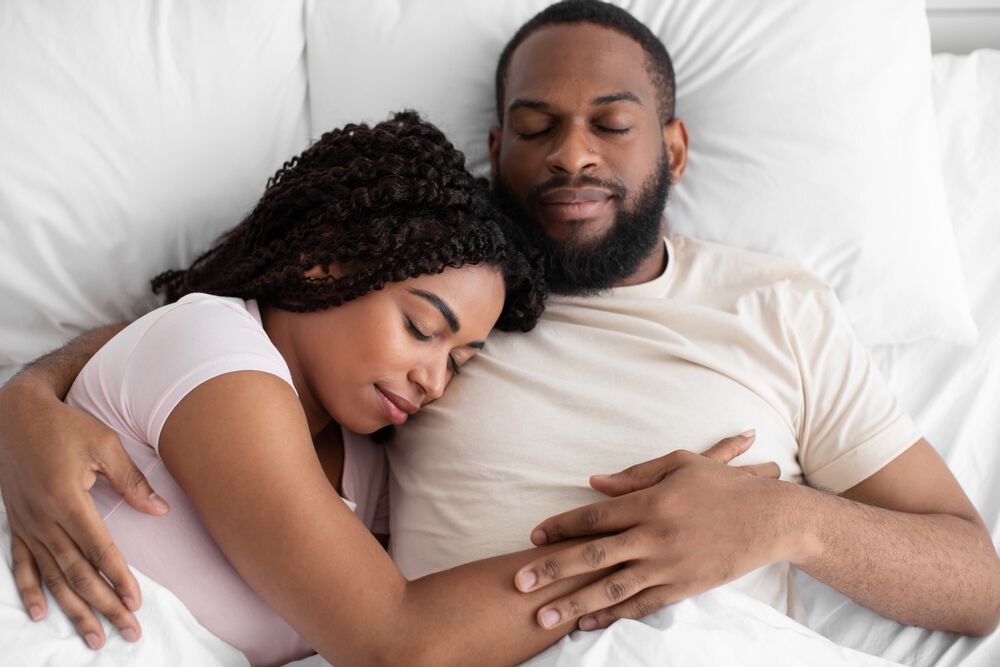There are dozens of factors that can impact the quality of your sleep—how fast you fall asleep, how deeply you sleep, and even how vividly you dream. Some of the more obvious factors include your mattress, sleep schedule, and the ambient noise around you.
But have you ever thought about your ambient room temperature and how that impacts your sleep?
Sure, it crosses your mind on those extra chilly winter nights or unbearably hot summer evenings, but it might be time to consider the impact average room temperatures can have on your sleep story.
So, what’s the ideal sleeping temperature and why is it important?
Let’s discuss.
Why Does Room Temperature Matter?
If you've ever tried to sleep in an environment that feels like a sauna or an icebox, you know how miserable extreme temperatures can be. Tossing, turning, and frequent wake-ups are the uninvited guests to this not-so-slumber party.
But it's worth noting that this problem is often more pronounced when the room temperature is too hot. Even a room that might be considered icy can often be made more comfortable with enough blankets. Sure, it might distract, but it typically won’t detract from sleep quality.
For this reason, you want to aim for a comfortably cool room. There are different ways to stay cool at night. Physiologically speaking, a cooler ambient room temperature can:
- Aid in quick sleep onset – A cooler room helps lower your core body temperature, signaling that it's time to wind down and drift off. The quicker your core temperature drops, the faster you'll find yourself in dreamland.
- Improve sleep quality – A moderately cool room enhances your sleep quality by allowing you to cycle through the necessary sleep stages—like deep sleep and REM—more effectively without waking up.
- Align with circadian rhythms – The temperature of your room should mimic the natural core body temperature dip you experience at night. This synchronicity helps regulate your internal clock, supporting a healthier sleep cycle.
- Minimize sleep disruptions – An optimal sleep temperature reduces the risk of waking up due to discomfort, making your night's sleep as smooth as possible.
- Boost melatonin production – Cooler rooms encourage the release of melatonin, the hormone responsible for sleep regulation that helps you fall asleep and stay asleep.
What Is The Ideal Room Temperature?
So, what is that sleep Goldilocks zone?
The general recommendation from the National Sleep Foundation is to err on the cooler side, between 60–67 degrees Fahrenheit.
However, recent research flips the script a bit for the 65 and up crowd. If you're in this age bracket, you might find you have better sleep with an average room temperature that’s a touch warmer—somewhere between 68 and 77 degrees Fahrenheit. Why the discrepancy?
As we age, our body's thermoregulation changes, making a slightly warmer environment more conducive to quality rest.
Finding the Ideal Room Temperature
While 60–67 degrees might be the recommended starting point, that temperature isn’t set in stone. Personalization is key. Experiment and adjust until you find your own sleep sweet spot.
Your ideal room temperature can be influenced by various factors including:
- Bedding material – What your sheets are made of could either be a hot night's worst enemy or coolest ally. Cotton, for example, breathes easier than polyester.
- Mattress materials – Some mattresses use technologies like gel-infused memory foam and moisture-wicking covers to optimize your good nights sleep by keeping you cool and dry.
- Health – Your general health can significantly impact how hot or cold you feel. For instance, menopause often brings on hot flashes and night sweats, and thyroid issues can impact how your body responds to temperature.
- Sex – On average, men and women experience temperature differently due to varying metabolic rates and muscle mass. Men, with higher metabolic rates and more muscle mass, often feel warmer. On the other hand, women, with lower metabolic rates and less muscle mass, are usually more sensitive to cooler temperature, despite having a slightly higher core body temperature.
- Physical fitness – Similarly, your level of physical fitness can also significantly affect your ideal sleep temperature. Physically active adults may find cooler temperature more comfortable, as increased muscle mass and metabolism generate additional body heat. Conversely, those who are less active might prefer a warmer sleeping environment.
- Season – Seasonal changes impact sleep temperature preferences. In summer, you might lean toward the cooler end of the scale to counteract outdoor heat. Winter, on the other hand, may have you nudging the thermostat up for added warmth.
- Humidity levels – Humidity levels impact how we perceive heat, with higher levels tending to intensify warm temperatures.
- Sleepwear – It should go without saying, but wearing the right sleepwear matters. Lightweight, breathable fabrics like cotton can aid in cool sleeping, while heavier materials might trap heat.
Sleep Cool with Mancini’s Sleepworld
Ambient temperature is an oft-overlooked factor in the quality sleep equation—cooler rooms and organic mattresses with temperature-regulating technologies can make a world of difference. And, if you want to support your mental and physical health, you need to know how much sleep you need and take the proper measures to get the best sleep possible.
That’s why Mancini’s Sleepworld offers a range of mattresses designed to keep you cool, dry, and sound asleep all night long. Come explore our curated selection of gel memory foam mattresses, and discover how the right cooling mattress can elevate your sleep from so-so to so sensational.
Sources:
- NY Times. How Temperature Can Mess With Your Sleep (Or Improve It!). https://www.nytimes.com/wirecutter/blog/how-temperature-can-affect-your-sleep/
- National Sleep Foundation. Healthy Sleep Starts Before You Hit the Sheets. https://www.thensf.org/healthy-sleep-starts-before-you-hit-the-sheets/
- Science Direct. Nighttime ambient temperature and sleep in community-dwelling older adults. https://www.sciencedirect.com/science/article/abs/pii/S0048969723042468?via%3Dihub
- Doctors of Osteopathic Medicine. Why Do Women Typically Feel Colder Than Men? https://findado.osteopathic.org/why-do-women-typically-feel-colder-than-men

